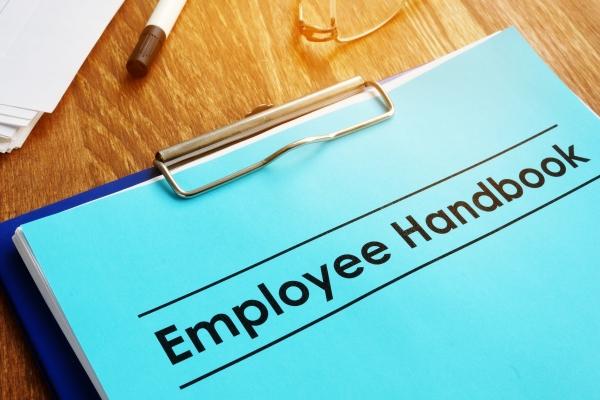The Case for Expert Assistance
In today’s increasingly mobile and remote-friendly workforce, many employers find themselves managing employees across multiple states. While this expansion opens up opportunities for growth and talent acquisition, it also introduces significant compliance challenges—particularly when it comes to employee handbooks.
Crafting a multi-state handbook isn’t as simple as inserting a few new clauses. Each state may have its own employment laws, wage requirements, leave policies, anti-harassment rules, and termination procedures. Trying to reconcile and apply these variations without expert guidance can result in costly legal missteps. Here's why multi-state handbooks are so complex—and how experienced professionals can help mitigate the risks.
Common Complications in Multi-State Employee Handbooks
1. Varying Legal Requirements
States often have employment laws that not only differ from federal regulations but also from each other. Different states have unique legal requirements for policies such as paid leave, minimum wage, and anti-discrimination laws. For instance, Minnesota policies for paid sick leave and family leave differ from those in Illinois. Additionally, local ordinances can further complicate matters, requiring employers to incorporate various local rules into their handbooks.
2. Compliance Challenges
Keeping up with frequent changes in state laws is a significant challenge. New employee leave laws or changes in cannabis regulations can vary widely between states. Moreover, conflicts between state and federal laws, or even between different state laws, require careful navigation to ensure compliance.
3. Complexity in Policy Implementation
Deciding whether to create a uniform handbook with state-specific addenda or separate handbooks for each state can be difficult. Striking a balance between tailoring policies for legal compliance and maintaining consistency in company culture is no small feat. Employers want uniformity in how employees are treated, but the law may force variations in leave accrual, disciplinary processes, or benefits administration.
4. Administrative Burden
Customizing handbooks to meet the specific legal requirements of each state and regularly updating them can be resource-intensive. Ensuring that HR teams and employees understand the differences in policies across states requires ongoing training and clear communication.
5. Risk of Non-Compliance
Non-compliance with state-specific laws can lead to legal disputesand penalties. An outdated policy—even one that was compliant when issued— can open the door to lawsuits or regulatory penalties. It’s crucial to ensure that all policies are legally compliant to avoid these risks.
The Importance of Expert Help
Given these complexities, seeking expert assistance is not just beneficial but often necessary. Here’s why:
1. Ensuring Accuracy and Compliance
HR experts with experience in handbook development have the knowledge and experience to navigate the intricate web of state and local laws. They can ensure that your handbook is up-to-date and compliant with all relevant regulations, reducing the risk of legal issues.
2. Contextual and Nuanced Understanding
Experts can provide the contextual understanding needed to interpret and apply policies correctly. They can help tailor your handbook to reflect the specific needs and circumstances of your organization, ensuring it is both relevant and practical for your employees.
3. Ethical and Legal Safeguards
Professional assistance can help address ethical and legal concerns, ensuring that your handbook meets data privacy and security standards. This is particularly important in states with stringent data protection laws.
4. Efficient and Effective Updates
Experts can streamline the process of updating your handbook, ensuring that it remains current with the latest legal changes. This can save your organization time and resources, allowing you to focus on other critical areas of your business.
Multi-state handbooks are not just an administrative formality – they’re a vital compliance and risk management tool and can help set the stage for a more informed and fair workforce. And while creating a multi-state employee handbook is a complex and challenging task, MRA’s experts can help make the process more manageable and ensure that your handbook is accurate, compliant, and effective.







